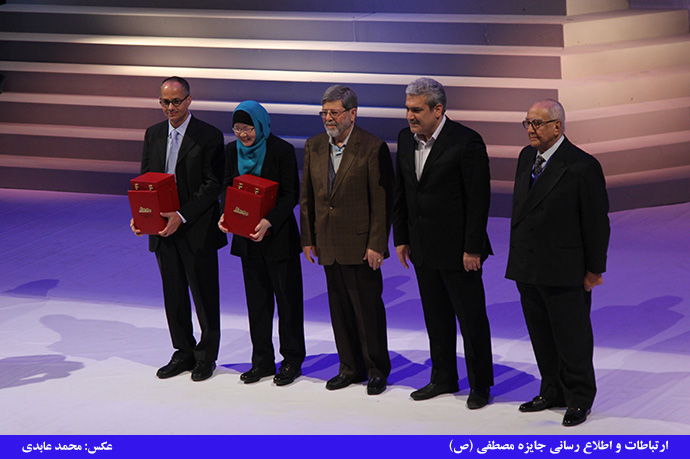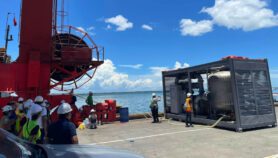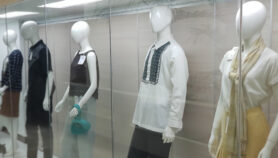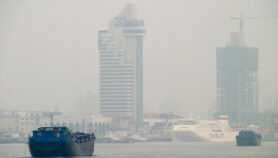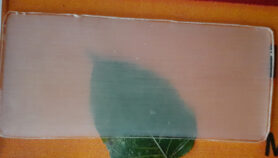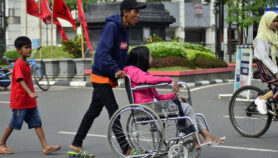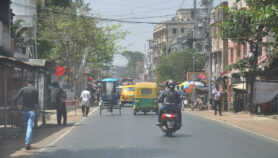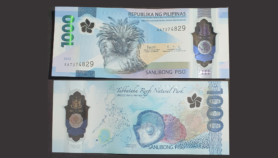By: Ranjit Devraj
Send to a friend
The details you provide on this page will not be used to send unsolicited email, and will not be sold to a 3rd party. See privacy policy.
The Mustafa Prize hints at Islamic science's golden age while awarding today's achievers, says Ranjit Devraj.
On Christmas day, the Islamic world sent out a reminder of its vast contributions to the advancement of science, technology and innovation (STI). At a solemn ceremony in Tehran, set off by recitations from the holy Quran, the Organisation of Islamic Cooperation (OIC) and its affiliated scientific bodies honoured the first two awardees of the Mustafa Prize for top scientists and innovators.
The prize is awarded biennially for achievements in Life Sciences and Medicine, Nanoscience and Nanotechnology, Information and Communication Technology and Scientific Achievement. In the first three categories, the nominees must be citizens of one of the 57 OIC member-countries, while in the last the nominee must be a Muslim, though not necessarily a citizen of an OIC country.
The awards, worth US$ 500,000 each, went to Jackie Y. Ying, CEO of the Institute of Bioengineering and Nanotechnology, Singapore, and Omar Yaghi, co-director of the Kavli Energy Nanosciences Institute, University of California. Mohammed Javed Zarif, Iran’s foreign minister and member of the Mustafa Prize policy-making council, said he hoped that its institution would help revive the golden days of Islamic science and build bridges in the future. While the award is organised by the Islamic Republic of Iran, the nominations are made by academia of the OIC.
The maiden claimants of the Mustafa Prize — described by some as the Nobel of the Islamic world — produced world-class work that easily met the criteria of improving human life through cutting-edge technology. While the Mustafa is not intended to compete with the Nobel, it certainly seemed to fill a certain gap. Said Ying: “Although there are many Muslim scientists I am afraid they haven’t received quite the same recognition as they deserve. So the Mustafa Prize is there to really highlight their achievement.”
Ying’s own achievements include development of a glucose-sensitive polymer capable of delivering insulin to diabetics orally or nasally, obviating needle pricks. The polymer also controls insulin release so that there is no fear of too much or too little of it circulating in the body. Little wonder that the pharma giant Merck forked out US$ 500 million to buy her technology. Ying’s labs have also has come up with nanotechnology that enhances drug delivery to tumours without destroying healthy cells, and toxicology tests for drugs and cosmetics that spare animals.
Jordan-born Yaghi’s achievements are no less impressive. He is credited with pioneering metal-organic frameworks (MOFs) that stitch together organic and inorganic molecules to produce new materials with truly amazing properties. MOFs have porous, crystalline, molecular structures that allow them to store large quantities of hydrogen, methane or other gases without resorting to high pressure or low temperatures. Already, BASF, the chemical giant, has begun commercial applications of MOFs that can safely store natural gas in fuel tanks and also increase vehicle range. A zirconium-based MOF developed by Yaghi cheaply extracts water from thin air, even in relatively dry regions of the world.
Apart from research work, Yaghi mentors students around the world and helps them design and develop MOFs, of which there are now hundreds transforming the way the world uses materials. “Mentoring is the golden thread of invention – what the world needs is a generation of mentors,” says Yaghi, a firm believer in the potential of harnessing youth.
Following the Mustafa Prize awards, Tehran played host to the 20th conference of the Islamic World Academy of Sciences whose theme ‘STI: Building Humanity’s Common Future’ reached beyond the OIC. A ‘Tehran Declaration’ reflects this gesture by emphasising that the “OIC and other developing countries have to create a paradigm shift to again become a community that values knowledge and become proficient in utilising and advancing S&T to enhance their socioeconomic well-being as well as humanity’s.”
Ranjit Devraj is the regional coordinator for SciDev.Net's South Asia edition.


